#herzegovina austrian
Text
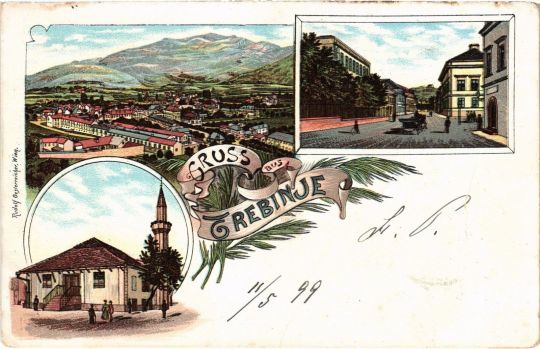
Greetings from Trebinje, Bosnia and Herzegovina
Austrian vintage postcard, mailed in 1899
#vintage#tarjeta#herzegovina#briefkaart#herzegovina austrian#postcard#greetings#trebinje#photography#postal#bosnia#carte postale#sepia#ephemera#historic#ansichtskarte#postkarte#austrian#1899#postkaart#mailed#photo
35 notes
·
View notes
Text
Joseph Barling Fellowship Australia Partial Funding $30,000 for Masters
Joseph Barling Fellowship Australia Partial Funding $30,000 for Masters
Joseph Barling Fellowship Australia at UNSW 2024 is available to undertake Master’s level programs at the University of New South Wales. Joseph Barling Fellowship Australia at UNSW 2024 is open for International Students. The scholarship allows Masters level program (s) in the field of Business Administration, Commerce, Engineering, and Manufacturing Engineering taught at the University of New…

View On WordPress
#Australia Scholarships#Business Administration Scholarships#Commerce Scholarships#Engineering Scholarships#International Masters Scholarships For Bosnia & Herzegovina#International Masters Scholarships For Kenyans students#International Students Scholarships#Manufacturing Engineering Scholarships#Masters Scholarships#Masters Scholarships for Afghanistan students#Masters Scholarships for Albanian students#Masters Scholarships for American Countries#Masters Scholarships for Andorra students#Masters Scholarships for Armenian Students#Masters Scholarships for Asian Countries#Masters Scholarships for Austrian students#Masters Scholarships for Bahrain Students#Masters Scholarships for Bangladeshi Students#Masters Scholarships for Belarusian students#Masters Scholarships for Belgium students#Masters Scholarships for Belizean students#Masters Scholarships for Bhutanese Students#Masters Scholarships for Bolivian students#Masters Scholarships for Brazilian Students#Masters Scholarships for Brunei students#Masters Scholarships for Bulgarian students#Masters Scholarships for Cambodian Students#Masters Scholarships for Canada Students#Masters Scholarships for Canadian Countries#Masters Scholarships for Canadian Students
1 note
·
View note
Text
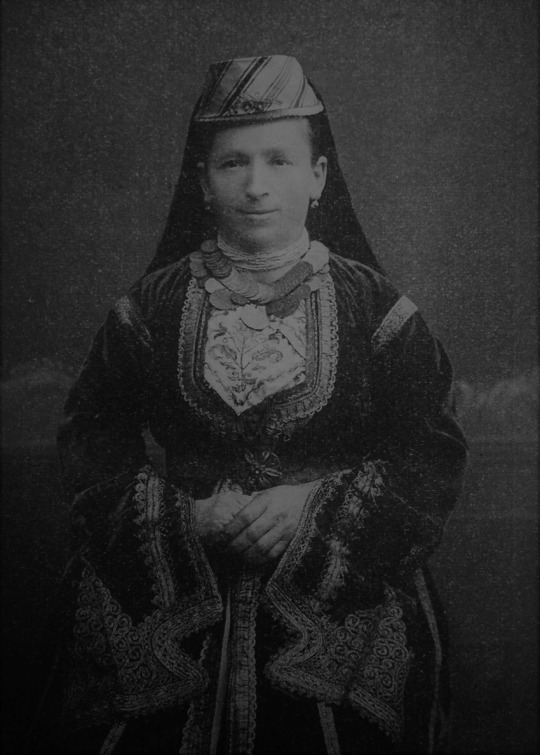

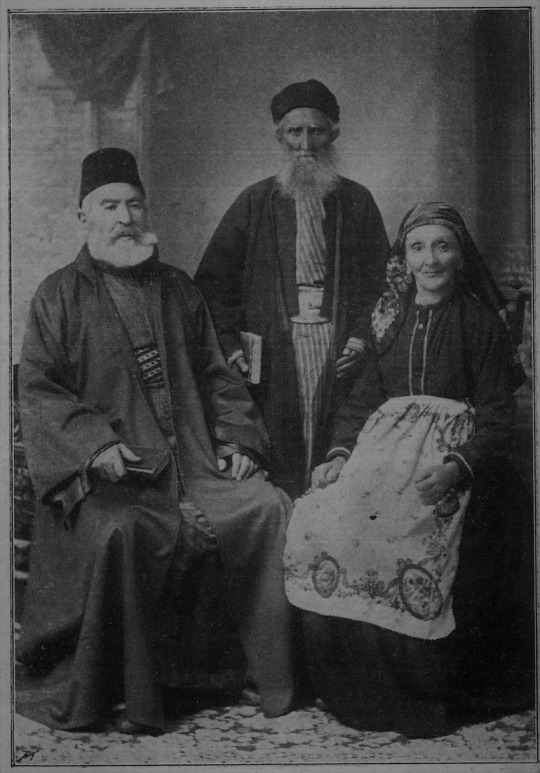
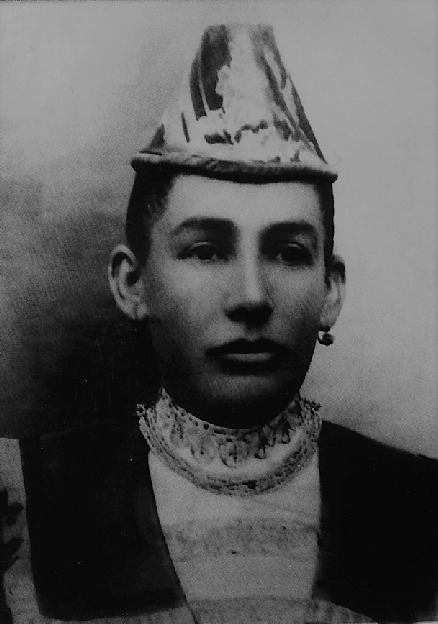
Sephardic Jews from Sarajevo, Bosnia and Herzegovina, 1900s. National Museum of Bosnia and Herzegovina, National Library of Israel, The Austrian Museum of Folk Life and Folk Art
331 notes
·
View notes
Text
There were 173 Banks around the World that failed this week – and went unreported by the Mainstream Media.
The Rothschild Banks in controlled collapse, including the US Federal Reserve:
Afghanistan: Bank of Afghanistan
Albania: Bank of Albania
Algeria: Bank of Algeria
Argentina: Central Bank of Argentina
Armenia: Central Bank of Armenia
Aruba: Central Bank of Aruba
Australia: Reserve Bank of Australia
Austria: Austrian National Bank
Azerbaijan: Central Bank of Azerbaijan Republic
Bahamas: Central Bank of The Bahamas
Bahrain: Central Bank of Bahrain
Bangladesh: Bangladesh Bank
Barbados: Central Bank of Barbados
Belarus: National Bank of the Republic of Belarus
Belgium: National Bank of Belgium
Belize: Central Bank of Belize
Benin: Central Bank of West African States (BCEAO)
Bermuda: Bermuda Monetary Authority
Bhutan: Royal Monetary Authority of Bhutan
Bolivia: Central Bank of Bolivia
Bosnia: Central Bank of Bosnia and Herzegovina
Botswana: Bank of Botswana
Brazil: Central Bank of Brazil
Bulgaria: Bulgarian National Bank
Burkina Faso: Central Bank of West African States (BCEAO)
Burundi: Bank of the Republic of Burundi
Cambodia: National Bank of Cambodia
Came Roon: Bank of Central African States
Canada: Bank of Canada – Banque du Canada
Cayman Islands: Cayman Islands Monetary Authority
Central African Republic: Bank of Central African States
Chad: Bank of Central African States
Chile: Central Bank of Chile
China: The People’s Bank of China
Colombia: Bank of the Republic
Comoros: Central Bank of Comoros
Congo: Bank of Central African States
Costa Rica: Central Bank of Costa Rica
Côte d’Ivoire: Central Bank of West African States (BCEAO)
Croatia: Croatian National Bank
Cuba: Central Bank of Cuba
Cyprus: Central Bank of Cyprus
Czech Republic: Czech National Bank
Denmark: National Bank of Denmark
Dominican Republic: Central Bank of the Dominican Republic
East Caribbean Area: Eastern Caribbean Central Bank
Ecuador: Central Bank of Ecuador
Egypt: Central Bank of Egypt
El Salvador: Central Reserve Bank of El Salvador
Equatorial Guinea: Bank of Central African States
Estonia: Bank of Estonia
Ethiopia: National Bank of Ethiopia
European Union: European Central Bank
Fiji: Reserve Bank of Fiji
Finland: Bank of Finland
France: Bank of France
Gabon: Bank of Central African States
The Gambia: Central Bank of The Gambia
Georgia: National Bank of Georgia
Germany: Deutsche Bundesbank
Ghana: Bank of Ghana
Greece: Bank of Greece
Guatemala: Bank of Guatemala
Guinea Bissau: Central Bank of West African States (BCEAO)
Guyana: Bank of Guyana
Haiti: Central Bank of Haiti
Honduras: Central Bank of Honduras
Hong Kong: Hong Kong Monetary Authority
Hungary: Magyar Nemzeti Bank
Iceland: Central Bank of Iceland
India: Reserve Bank of India
Indonesia: Bank Indonesia
Iran: The Central Bank of the Islamic Republic of Iran
Iraq: Central Bank of Iraq
Ireland: Central Bank and Financial Services Authority of Ireland
Israel: Bank of Israel
Italy: Bank of Italy
Jamaica: Bank of Jamaica
Japan: Bank of Japan
Jordan: Central Bank of Jordan
Kazakhstan: National Bank of Kazakhstan
Kenya: Central Bank of Kenya
Korea: Bank of Korea
Kuwait: Central Bank of Kuwait
Kyrgyzstan: National Bank of the Kyrgyz Republic
Latvia: Bank of Latvia
Lebanon: Central Bank of Lebanon
Lesotho: Central Bank of Lesotho
Libya: Central Bank of Libya (Their most recent conquest)
Uruguay: Central Bank of Uruguay
Advertisements
REPORT THIS AD
Lithuania: Bank of Lithuania
Luxembourg: Central Bank of Luxembourg
Macao: Monetary Authority of Macao
Macedonia: National Bank of the Republic of Macedonia
Madagascar: Central Bank of Madagascar
Malawi: Reserve Bank of Malawi
Malaysia: Central Bank of Malaysia
Mali: Central Bank of West African States (BCEAO)
Malta: Central Bank of Malta
Mauritius: Bank of Mauritius
Mexico: Bank of Mexico
Moldova: National Bank of Moldova
Mongolia: Bank of Mongolia
Montenegro: Central Bank of Montenegro
Morocco: Bank of Morocco
Mozambique: Bank of Mozambique
Namibia: Bank of Namibia
EVERYTHING is going to crash!
Are You Prepared? 🤔
#pay attention#educate yourself#educate yourselves#reeducate yourself#knowledge is power#reeducate yourselves#think for yourself#think for yourselves#think about it#do your homework#do your research#do your own research#question everything#ask yourself questions#ask yourself#central banking#everything is going to crash#everything is falling apart
112 notes
·
View notes
Text

“Butmir Naselia (Sarajevo) Neolithic culture 5500 BC. - 4500 BC Discovered in 1893 by the Austrian authorities. Recognized for its unique ceramics - National museums of Bosnia and Herzegovina”
Instagram/friendswithclay
29 notes
·
View notes
Text
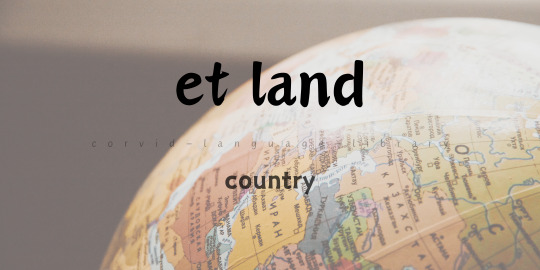
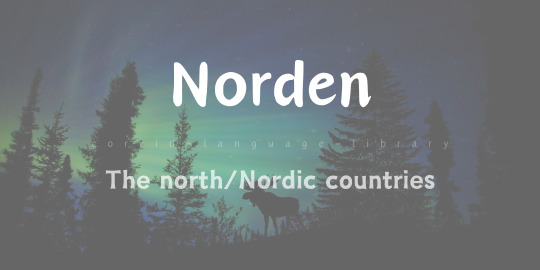
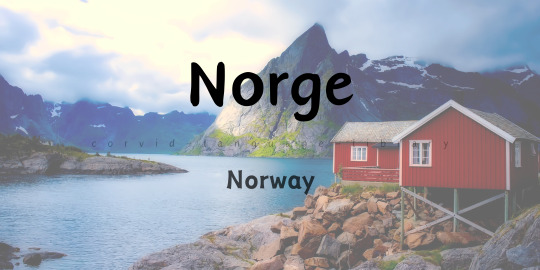
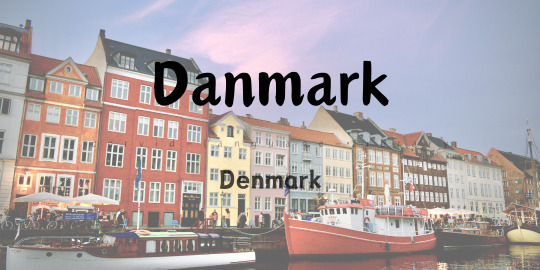
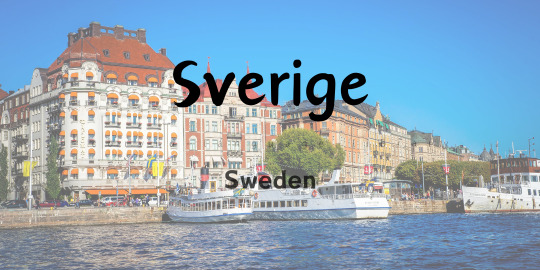
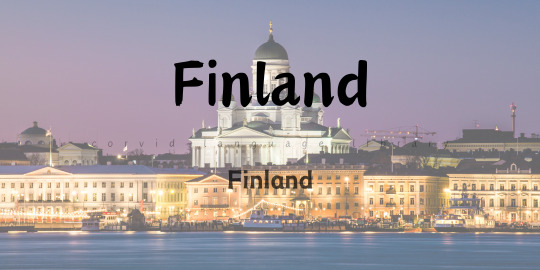
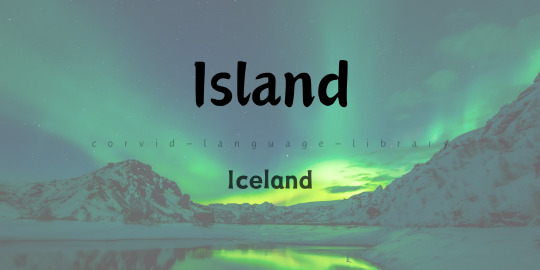

Norwegian Bokmål for Total Beginners (January 2024 Crash Course)
25. Nordic Countries
Welcome to day 25! We're doing pretty well here, huh? :D Today we're learning the names for the nordic countries!
land (n) - country
Norden - the north (specifically the nordics)
Norge - Norway
Danmark - Denmark
Sverige - Sweden
Finland - Finland
Island - Iceland
Færøyene - The Faroe Islands
Bonus
språk (n) - language
nasjonalitet (m) - nationality
Grammar: Language & Nationality
Unlike English where we can change the word of the country in any number of ways to get the language/nationality (France -> French, Germany -> German, Norway -> Norwegian, Sweden -> Swedish, China -> Chinese etc), it's pretty easy in Norwegian: it'll always end in -sk:
Norge -> norsk (Norwegian)
Sverige -> svensk (Swedish)
Danmark -> dansk (Danish)
Finland -> finsk (Finnish)
Island -> islandsk (Icelandic)
Færøyene -> færøysk (Faroese)
This pertains to both the language and the nationality:
Han er norsk. Han snakker norsk. (He's Norwegian. He speaks Norwegian)
Vi er finske. Vi snakker finsk og svensk. (We're Finnish. We speak Finnish and Swedish)
Den islandske mannen snakker islandsk og dansk. (The Icelandic man speaks Icelandic and Danish)
Er dere færøysk? Snakker dere færøysk? (Are you Faroese? Do you speak Faroese?)
Note: all countries are capitalised just like in English, but languages and nationalities aren't.
Your turn!
Here's a list of countries in alphabetical order. Find your country and tell me what languages you speak! If your country or language isn't there, you're welcome to look it up, reblog and add it (there's like 200 countries and over 7000 languages in the world so I'm not gonna list them all, sorry. I chose the countries I did because I have or have had followers of those nationalities)
I'll go first!
Jeg kommer fra Storbritannia. Jeg er britisk. Jeg bor i Japan. Jeg snakker engelsk og norsk, og jeg lærer meg japansk. (I come from the UK. I am British. I live in Japan. I speak English and Norwegian, and I'm learning Japanese)
🇬🇧->🇳🇴
Argentina/Argentinian -> Argentina/argentisk
Australia/Australian -> Australia/australsk
Austria/Austrian -> Østerrike/østerrisk
Belarus/Belarusian -> Hviterussland/hviterussisk
Belgium/Belgian -> Belgia/belgisk (Flemmish = flamsk)
Bosnia & Herzegovina/Bosnian -> Bosnia og Hercegovina/bosnisk
Brazil/Brazilian -> Brasil/brasiliansk
Bulgaria/Bulgarian -> Bulgaria/bulgarsk
Canada/Canadian -> Canada/kanadisk
China/Chinese -> Kina/kinesisk
Croatia/Croatian -> Kroatia/kroatisk
Cyprus/Cypriot -> Kypros/kypriotisk
Czechia/Czech -> Tsjekkia/tsjekkisk
Egypt/Egyptian -> Egypt/egyptisk (Arabic = arabisk)
England/English -> England/engelsk
Estonia/Estonian -> Estland/estlandsk
France/French -> Frankrike/fransk
Germany/German -> Tyskland/tysk (Yiddish = jiddisk)
Georgia/Georgian -> Georgia/georgisk
Greece/Greek -> Hellas/gresk
Greenland/Greenlandic -> Grønland/grønlandsk
Hungary/Hungarian -> Ungarn/ungarsk
India/Indian -> India/indisk
Ireland/Irish -> Irland/irsk
Israel/Israeli -> Israel/israelsk
Japan/Japanese -> Japan/japansk
Korea/Korean -> Korea/koreansk
Latvia/Latvian -> Latvia/latvisk
Lithuania/Lithuanian -> Litauen/litauisk
Mexico/Mexican -> Mexico/meksicansk
Moldova/Moldovan -> Moldova/Moldovisk
The Netherlands/Dutch -> Nederland/nederlandsk (Frisian = frisisk)
New Zealand/New Zealander -> New/Ny Zealand/new/ny zealandsk (Aotearoa = Aotearoa)
Palestine/Palestinian -> Palestina/palestinsk (Gaza = Gaza, the West Bank - Vestbredden)
The Philippines/Filipino -> Filippinene/filipinsk
Poland/Polish -> Polen/polsk
Portugal/Portuguese -> Portugal/portugisisk
Romania/Romanian -> Romania/rumensk
Russia/Russian -> Russland/russisk
Scotland/Scottish -> Skottland/skotsk (Scots = skotsk, Scottish Gaelic = skotsk-gælisk)
Serbia/Serbian -> Serbia/serbisk
Slovakia/Slovak -> Slovakia/slovakisk
Slovenia/Slovenian -> Slovenia/slovensk
South Africa/South African -> Sør-Afrika/sørafrikansk
Spain/Spanish -> Spania/spansk
Thailand/Thai -> Thailand/thailandsk
Turkey/Turkish -> Tyrkia
The UK/British -> Storbritannia/britisk
Ukraine/Ukrainian -> Ukraina/ukrainsk
The USA/American -> USA/amerikansk
Vietnam/Vietnamese -> Vietnam/vietnamsk
Wales/Welsh -> Wales/walisisk
Zimbabwe/Zimbabwean -> Zimbabwe/zimbabwisk (Shona = sjona)
#nutrcracker norsk#norwegian langblr#beginner norwegian#jan '24 beginner norwegian crash course#learning norwegian#norwegian: a1#my oc: norwegian#norwegian#norsk
5 notes
·
View notes
Text
Fascism in Croatia
I want to write about today's problem, but it is impossible without explaining the roots.
When the first Yugoslavia was established under the serbian king, serbs wanted to persuade croats, slovenes, and other ethnicities to become serbs. That was mostly performed on polite way, but sometimes with oppresion, even brutal. As a revolt, terrorist organisation "ustaše" ("rebels") was established. After some time they found refuge in Hungary and Mussolini's Italy.
When IIWW started, Hitler and Mussolini put that terroristi organisation on power in Croatia, establishing so called Independent state of Croatia on the territory of today's Croatia and Bosnia and Herzegovina. Nobody in Croatia voted for thair government. Newborn state immediately started with ethnic cleansing of their territory. They killed about 300.000 people who mostly didn't resist, as they didn't understand why should anybody have anything against them.
About 50.000 croats joined ustaša army on the begining of the war, as volunteers. Croats who were against the terror joined Tito's partizans. On the begining of the war was rather small number of partizans, but the movement grow during time to 500.000 soldiers on the end of the war + 305.000 fallen in battles. So total is about 800.000, and about 300.000 of them were croats. Uncommitted croats were mostly mobilised to regular army, domobrani (homeprotectors). They actually didn't want to fight, and were an easy target for partisans, and the main souce of weapon and personel.
On the end of the war, ustaše run to Austria to surrender to british forces, but after surrending they were relinquished to partizans and during next month liquidated in norther Slovenia, near the austrian border.
In todays Croatia about 30% of people consider ustašas as heroes, and partisans as bandits. Many so called historians want to falsificate the history, deny any war crime done by ustašas, and exaggerate number of liquidated ustašas to enorm unrealistic numbers. And all that goes without any punishment from the government.
Ustaša's slogan is in common and free use, even is officialy forbiden. Ustaša's songs are sang by paramilitary soldiers (HOS) every year on the date of liberation of croatian occupated territories from yugoslav army in 1995. in Knin. All members of that paramilitary group have T-shirts with that slogan and wear it on all official celebrations. Well, their excuse is that the slogan is older then IIWW and it is not connected with ustašas. But uniforms of that palamiritary organisation are exactly the same like ustaša's. And songs.
I lived in Zagreb till some one and half year. At least every three months I heard in some of Zagreb's caffe bars the following song, on jubox or sang by visitors:
"Jasenovac and Gradiška Stara, that is house of Maks's butchers"
Jasenovac was a concentration camp where manager was Maks Luburić, and there were killed about 100.000 people, mostly by slaughtering by special knives ergonomically adjusted for easier work.
The song goes further:
"In Čapljina (place in Bosnia) was slaughterhouse, many serbs Neretva (river) carried. Hey Neretva, flow near the coast, carry serbs to blue Adriatic."
On the end of the song guys said: "We are not embarresed to say that we are croats". I said to waiter that I am embarresed to be croat when listening them to sing such song. After a few days I found my car with broken windows.
Once when I heard that song in caffe bar I called the police. They came and made a lot of problems ... to me.
So, probably Putin would have a lot of job in Croatia, to solve the problem of "nazism", like he is doing in Ukraine as he said. But that is not realistic scenario, as that extremists in Criatia actualy adore Trump and Putin and want russian military base to be build on Adriatic coast. My opinion is that FSB work in Croatia, search for such morons, encourage them, and take care that nobody stop them. The goal is probably to take control over croatian seaside, as a strategic important point.
17 notes
·
View notes
Text
The only country that can not be the sucessor to The Roman Empire is Thailand.
The Eastern Roman Empire/ Split off from the Western Roman Empire
France- Claimed to be the successor
HRE- Claimed to be the successor
Russia- Claimed to be the sucessor to the Eastern Roman Empire
Ottoman- Claimed to be the sucessor to the Eastern Roman Empire
Vatican City- It’s complicated
Germany- Kind of sort of the sucessor to the HRE
Austria- The sucessor to the Austrian Empire, wich claimed to be the sucessor to the HRE.
Spain-The Hispano-Gothic monarchy claimed to be the sucessor to the Roman empire, the last titular emperor of Andreas Palaiologos claimed that the monarchy of Spain were his heirs, and Spain has connections with the Holy Roman Empire through the Hapsburgs,
Italy- Claimed to be the sucessor
Turkey- The sucessor to the Ottoman Empire
Greece- Claimed to be the sucessor to the Eastern Roman Empire
Romania- The Paleologu family is descended from the Kantakouzenos dynasty. Also, the name is pretty similar.
Georgia- Helped create The Empire of Trebizond wich claimed to be the sucessor to the Eastern Roman Empire
Serbia- A guy named Marziano Lavarello claimed to be the rightful emperor of The Eastern Roman Empire and also the rightful king of Serbia. Also, Serbia briefly claimed to be the heir to The Eastern Roman Empire
Bulgaria- Claimed to be the sucessor to the Eastern Roman Empire.
Tunisia- If they wanted to, they could claim to be the successors to the Vandals.
Belgium, Netherlands, Switzerland, Leichenstein, Luxumbourg- They were part of the Holy Roman Empire.
UK and Sweden- Defeated France when it was claiming to be the sucessor to Rome
Portugal, Catalan, Andorra, San Marino, Slovenia, Croatia, Bosnia and Herzegovina, Macedonia, Albania, Montenegro, Kosovo, Israel, Syria, Egypt, Libya, Algeria, and Morocco- Were part of Rome and some of the sucessor states
Any Country that was once part of England, France, Germany, Italy, the Netherlands, Portugal, Sweden, the Ottoman Empire, or Russia- Were part of a country previously mentioned as being a potential sucessor state
Ethiopia- Was occupied by Italy.
Japan- Were defeated by the US, who used to be part of the UK.
Any country occupied or conquered by Japan- Part of a potential sucessor state
Afghanistan- Under the control of Russia and the Uk at different times
Liberia- Colonized by the US
Bhutan, Nepal, and Iran- In British sphere of influence
3 notes
·
View notes
Text
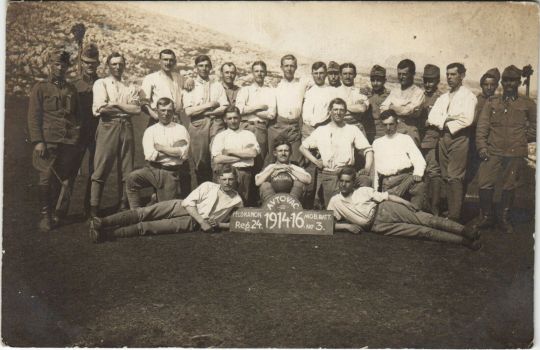
Hungarian soldiers playing football in Avtovac during the First World War, Bosnia and Herzegovina
Austrian vintage postcard, mailed in 1916 to Prague, Czechia
#vintage#football#tarjeta#avtovac#herzegovina#briefkaart#1916#herzegovina austrian#postcard#photography#hungarian#the first world war#postal#bosnia#world#carte postale#playing#sepia#ephemera#historic#czechia#ansichtskarte#soldiers#postkarte#austrian#prague#postkaart#mailed#photo
7 notes
·
View notes
Text
The Rothschild-Owned Central Banks of the World
Afghanistan: Bank of Afghanistan
Albania: Bank of Albania
Algeria: Bank of Algeria
Argentina: Central Bank of Argentina
Armenia: Central Bank of Armenia
Aruba: Central Bank of Aruba
Australia: Reserve Bank of Australia
Austria: Austrian National Bank
Azerbaijan: Central Bank of Azerbaijan Republic
Bahamas: Central Bank of The Bahamas
Bahrain: Central Bank of Bahrain
Bangladesh: Bangladesh Bank
Barbados: Central Bank of Barbados
Belarus: National Bank of the Republic of Belarus
Belgium: National Bank of Belgium
Belize: Central Bank of Belize
Benin: Central Bank of West African States (BCEAO)
Bermuda: Bermuda Monetary Authority
Bhutan: Royal Monetary Authority of Bhutan
Bolivia: Central Bank of Bolivia
Bosnia: Central Bank of Bosnia and Herzegovina
Botswana: Bank of Botswana
Brazil: Central Bank of Brazil
Bulgaria: Bulgarian National Bank
Burkina Faso: Central Bank of West African States (BCEAO)
Burundi: Bank of the Republic of Burundi
Cambodia: National Bank of Cambodia
Cameroon: Bank of Central African States
Canada: Bank of Canada -- Banque du Canada
Cayman Islands: Cayman Islands Monetary Authority
Central African Republic: Bank of Central African States
Chad: Bank of Central African States
Chile: Central Bank of Chile
China: The People’s Bank of China
Colombia: Bank of the Republic
Comoros: Central Bank of Comoros
Congo: Bank of Central African States
Costa Rica: Central Bank of Costa Rica
Côte d’Ivoire: Central Bank of West African States (BCEAO)
Croatia: Croatian National Bank
Cuba: Central Bank of Cuba
Cyprus: Central Bank of Cyprus
Czech Republic: Czech National Bank
Denmark: National Bank of Denmark
Dominican Republic: Central Bank of the Dominican Republic
East Caribbean area: Eastern Caribbean Central Bank
Ecuador: Central Bank of Ecuador
Egypt: Central Bank of Egypt
El Salvador: Central Reserve Bank of El Salvador
Equatorial Guinea: Bank of Central African States
Estonia: Bank of Estonia
Ethiopia: National Bank of Ethiopia
European Union: European Central Bank
Fiji: Reserve Bank of Fiji
Finland: Bank of Finland
France: Bank of France
Gabon: Bank of Central African States
The Gambia: Central Bank of The Gambia
Georgia: National Bank of Georgia
Germany: Deutsche Bundesbank
Ghana: Bank of Ghana
Greece: Bank of Greece
Guatemala: Bank of Guatemala
Guinea Bissau: Central Bank of West African States (BCEAO)
Guyana: Bank of Guyana
Haiti: Central Bank of Haiti
Honduras: Central Bank of Honduras
Hong Kong: Hong Kong Monetary Authority
Hungary: Magyar Nemzeti Bank
Iceland: Central Bank of Iceland
India: Reserve Bank of India
Indonesia: Bank Indonesia
Iran: The Central Bank of the Islamic Republic of Iran
Iraq: Central Bank of Iraq
Ireland: Central Bank and Financial Services Authority of Ireland
Israel: Bank of Israel
Italy: Bank of Italy
Jamaica: Bank of Jamaica
Japan: Bank of Japan
Jordan: Central Bank of Jordan
Kazakhstan: National Bank of Kazakhstan
Kenya: Central Bank of Kenya
Korea: Bank of Korea
Kuwait: Central Bank of Kuwait
Kyrgyzstan: National Bank of the Kyrgyz Republic
Latvia: Bank of Latvia
Lebanon: Central Bank of Lebanon
Lesotho: Central Bank of Lesotho
Libya: Central Bank of Libya
Lithuania: Bank of Lithuania
Luxembourg: Central Bank of Luxembourg
Macao: Monetary Authority of Macao
Macedonia: National Bank of the Republic of Macedonia
Madagascar: Central Bank of Madagascar
Malawi: Reserve Bank of Malawi
Malaysia: Central Bank of Malaysia
Mali: Central Bank of West African States (BCEAO)
Malta: Central Bank of Malta
Mauritius: Bank of Mauritius
Mexico: Bank of Mexico
Moldova: National Bank of Moldova
Mongolia: Bank of Mongolia
Montenegro: Central Bank of Montenegro
Morocco: Bank of Morocco
Mozambique: Bank of Mozambique
Namibia: Bank of Namibia
Nepal: Central Bank of Nepal
Netherlands: Netherlands Bank
Netherlands Antilles: Bank of the Netherlands Antilles
New Zealand: Reserve Bank of New Zealand
Nicaragua: Central Bank of Nicaragua
Niger: Central Bank of West African States (BCEAO)
Nigeria: Central Bank of Nigeria
Norway: Central Bank of Norway
Oman: Central Bank of Oman
Pakistan: State Bank of Pakistan
Papua New Guinea: Bank of Papua New Guinea
Paraguay: Central Bank of Paraguay
Peru: Central Reserve Bank of Peru
Philippines: Bangko Sentral ng Pilipinas
Poland: National Bank of Poland
Portugal: Bank of Portugal
Qatar: Qatar Central Bank
Romania: National Bank of Romania
Russia: Central Bank of Russia
Rwanda: National Bank of Rwanda
San Marino: Central Bank of the Republic of San Marino
Samoa: Central Bank of Samoa
Saudi Arabia: Saudi Arabian Monetary Agency
Senegal: Central Bank of West African States (BCEAO)
Serbia: National Bank of Serbia
Seychelles: Central Bank of Seychelles
Sierra Leone: Bank of Sierra Leone
Singapore: Monetary Authority of Singapore
Slovakia: National Bank of Slovakia
Slovenia: Bank of Slovenia
Solomon Islands: Central Bank of Solomon Islands
South Africa: South African Reserve Bank
Spain: Bank of Spain
Sri Lanka: Central Bank of Sri Lanka
Sudan: Bank of Sudan
Surinam: Central Bank of Suriname
Swaziland: The Central Bank of Swaziland
Sweden: Sveriges Riksbank
Switzerland: Swiss National Bank
Tajikistan: National Bank of Tajikistan
Tanzania: Bank of Tanzania
Thailand: Bank of Thailand
Togo: Central Bank of West African States (BCEAO)
Tonga: National Reserve Bank of Tonga
Trinidad and Tobago: Central Bank of Trinidad and Tobago
Tunisia: Central Bank of Tunisia
Turkey: Central Bank of the Republic of Turkey
Uganda: Bank of Uganda
Ukraine: National Bank of Ukraine
United Arab Emirates: Central Bank of United Arab Emirates
United Kingdom: Bank of England
United States: The Dirty Nasty Stinky Fed, Federal Reserve Bank of New York
Uruguay: Central Bank of Uruguay
Vanuatu: Reserve Bank of Vanuatu
Venezuela: Central Bank of Venezuela
Vietnam: The State Bank of Vietnam
Yemen: Central Bank of Yemen
Zambia: Bank of Zambia
Zimbabwe: Reserve Bank of Zimbabwe
1 note
·
View note
Text
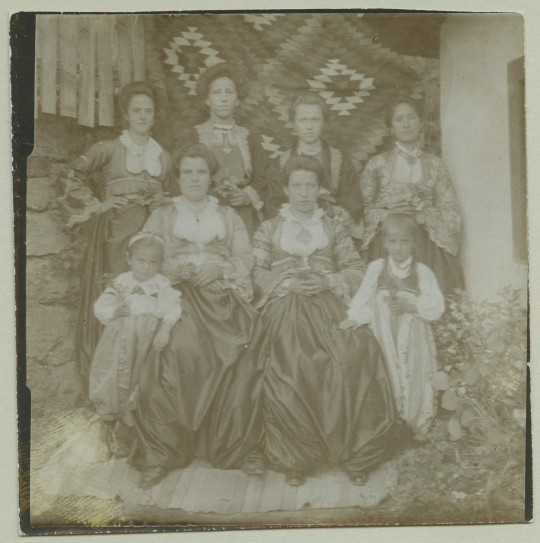
Group portrait of Croatian women in Jajce, Bosnia and Herzegovina, 1912. Edmund Schneeweis, Austrian Museum of Folk Life and Folk Art
28 notes
·
View notes
Text


This is the story of thirteen-year-old Adnan. In the turmoil of the war in Bosnia and Herzegovina he witnesses the brutal murder of his parents and sister, himself severely wounded by a gunshot. This moment marks the beginning of his struggle for survival.
Completely on his own, he manages to save himself with his last ounce of strength to a house damaged by the fires that have been set, hoping to escape the still raging battles, to survive and to finally be rescued. But in his hiding place, a period of martyrdom begins for him.
A psychological masterpiece of historic importance - the tragedy of a small Bosnian village at the 20th century. A shocking example of how ethnically different groups that have lived together and accepted each others' religion, customs and habits for many generations were sucked into a human abyss. The boy, badly injured himself, had witnessed the killing of his parents and his little sisters. Only his irrepressible will allowed him to survive these eight days.
Hon. Prof. Mag. Dr. Thomas Müller, criminal psychologist, former head of Kriminalpsychologischer Dienst, Austrian Ministry of the Interior - Vienna
An exceptional text of greatest importance to grab - after almost three decades - the madness of the »ethnic cleansing« in former Yugoslavia. Thomas Obruca, who investigated the HVO forces attack on the village of Ahmici on April 16th, 1993 for the International Yugoslavia Tribunal in The Hague, describes the inconceivable. The unimaginable experience of the thirteen-year-old Adnan to watch the killing of his family and live through eight days full of anxiety before being found by UN-peace forces. By delving into the matter there might be a way out of similar atrocities. Hopefully!
Manfred Nowak, Univ. Prof. for Human Rights - Vienna, General Secretary of the Global Campus of Human Rights - Venice
1 note
·
View note
Text
How To Become A Landowner In Bosnia In 3 Easy Steps
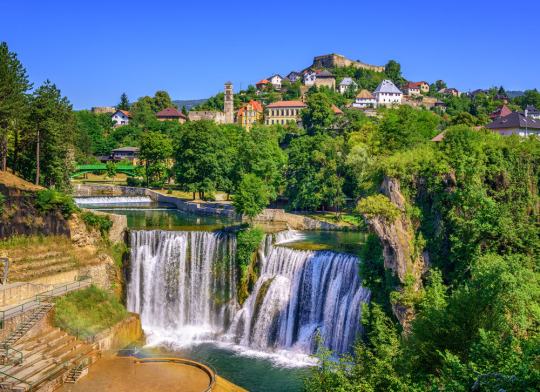
Bosnia and Herzegovina is home to several UNESCO World Heritage Sites, including the Old Bridge Area of the Old City of Mostar, the Mehmed Paša Sokolović Bridge in Višegrad, and the Stećci Medieval Tombstones Graveyards.
The capital city of Bosnia and Herzegovina is Sarajevo, which is also the largest city in the country. It is known for its rich history, beautiful architecture, and stunning natural surroundings.
Bosnia and Herzegovina has a rich cultural heritage, with traditional music, dance, and art forms that are unique to the region. The country is also known for its delicious cuisine, which is influenced by Turkish, Austrian, and Mediterranean flavors.
The country has a stunning natural landscape, with rugged mountains, sparkling rivers, and pristine forests. Some of the most popular outdoor activities include hiking, skiing, and rafting.
What makes Bosnia a prime real estate investment opportunity?
Bosnia and Herzegovina is becoming an increasingly popular destination for real estate investment for several reasons:
i. Low property prices: Property prices in Bosnia and Herzegovina are significantly lower than in many other European countries, making it an attractive option for investors looking for a high return on investment.
ii. Favorable tax laws: The country has a flat tax rate of 10% on personal and corporate income, which makes it an attractive destination for foreign investors looking to maximize their profits.
iii. Strategic location: Bosnia and Herzegovina is located at the crossroads of Europe and Asia, with access to major transportation routes. This makes it an ideal location for businesses looking to expand their operations.
iv. Growing tourism industry: Bosnia and Herzegovina is becoming an increasingly popular tourist destination, with a rich cultural heritage, beautiful natural scenery, and affordable prices. This is driving demand for hotels, rental properties, and other types of accommodation.
v. Political stability: Since the end of the Bosnian War in 1995, the country has been relatively stable, with a democratic government and a growing economy.
vi. Access to EU markets: Bosnia and Herzegovina is currently a candidate for membership in the European Union, which could potentially open up access to new markets and investment opportunities.
Overall, Bosnia and Herzegovina offers a unique combination of affordable property prices, favorable tax laws, and a strategic location at the crossroads of Europe and Asia, making it an attractive destination for real estate investment.
Become A Landowner In Bosnia In 3 Easy Steps
Under Bosnia law, a piece of property needs to be either owned by a native or a company. At Sidra, you get to take advantage of the optimal weather, rich culture & affordable high standards of living. While we handle the ownership procedures for you in 3 easy steps;
i. Opening of a Company- Sidra will take on the responsibility of opening any company(ies) needed.
ii. Assigning a Legal Advisor to take care of all the legal paperwork.
iii. Renewal fees of company(ies) will be free of charge for 5 years.
How Sidra lets you key into Real Estate Investment opportunities in Bosnia
Sidra is an exclusive gated community developed by DarGlobal offering the utmost luxury and tranquillity for you and your family. With premium services and world-class amenities, nestled in the heart of Bosnia, equipped with private residential plots with a stunning 540,000 SQM landscape.
As a member of this community, you will enjoy premium services and world-class amenities, so you can transcend ordinary living.
Sidra is strategically located to a wide range of attractions
•Skakavac Waterfall. At 98 metres it is one of the tallest waterfalls.
•Bijambare National Park is known for its five cave complex, two water flows with lakes, chasms and rocky massif, making it ideal for nature excursions & visits.
•Ajdinovici Sports & Recreational Centre. A recreational centre offering lodging and a variety of sports activities to enjoy.
With a travel time of:
-40 minutes from Sarajevo International Airport
-35 minutes to Sarajevo
-10 minutes from the main highway
-10 minutes to Nišići
Sidra is the only masterplan in the heart of Europe that serves you outstanding benefits
1. Benefit from a Fully-Serviced Masterplan. Sidra is pre-equipped with main gates with Security cameras, Guard rooms, Asphalted roads, Sidewalks, Street Lighting, and Road landscapes.
2. Benefit from Pre-Acquired Permits. When you purchase a plot at Sidra you can have peace of mind knowing every plot instantly comes with the right permit. Residential permits are granted for Villas while Commercial permits are granted for retail strip, spa, & hotel and other amenities.
3. Benefit from Plots With A Connected Grid Network. The plots are:
i. Pre-sorted
ii. Ranging from 350SQM to 6500SQM
iii. Connected to a water network
iv. Connected to the electric power grid
v. Telecom provisions
To book your plot contact RealEstate_Moses via:
WhatsApp- +234 906 576 8187
Email- [email protected]
0 notes
Text
Mirrorverse historical timeline thoughts:
Under the cut because it is long as f*ck.
Before any commentary can be made, I have to acknowledge we have not nailed down the current 6 fics to a specific date. The six fics currently cover ~2 years or so, with the vast majority of that coming from “In the Mirror (Darkly).” Taaffe is Minister-President by the end of the fics and seems to have been so for a reasonable length of time - this means we are looking at an earliest start date of say, 1878 and the latest start date of 1891 based on that alone. Because of Mayerling implications, I’m going to bring the latest possible start date down to 1887.
This gives us a start date of between 1878 and 1887 which give Taaffe death dates of 1880 and 1889, respectively.
Some comments on what happens during this period in Rudolf’s life (historically):
1881: Rudolf gets married
September 1883: Rudolf’s daughter was born. Rudolf and his wife were essentially separated by this time.
1886: Rudolf buys Mayerling
This would lend to choosing a start date of 1887 - the latest possible. Everything can fit - Rudolf is estranged from his wife. Part of me does want to move the start date earlier because I feel like the way both Fitzrove and I have written Rudolf is more in line with a man in his early 20s than late 20s, but if that is my only gripe then I think we are doing pretty well.
If Taaffe’s death is in 1889, probably later in the year (assuming that the end of “In the Mirror (Darkly)” occurs on the same date that Mayerling historically did), then I don’t see FJ’s death being before mid-1890 at the earliest.
With all that out of the way, let’s get to the list of historical events that I think should be considered with regards to WWI implications which occur after 1890 and involve A-H:
1897: Russia withdraws support for A-H annexation of Bosnia and Herzegovina. This was done by the Russians so I don’t see any change.
1903: King of Serbia was assassinated in a coup. The new king is pro-Russia. A-H-Serbia relations deteriorate thereafter. Again, an action I don’t see any change for - this happened in Serbia.
1908: Bachlau - A-H foreign minister and Russian foreign minister decide to redraw some borders in the Balkans without talking to any other great powers. In the end Russia/Serbia back down. This was a pretty near-run thing with regards to starting WWI a few years early. Rudolf might have a different foreign minister, but most of the ... sketchy sh*t appears to have been on the Russian side (says the English wiki page), so I’m not sure I see a major change here.
1912: Balkan wars - (I’m lazy so have this from wikipedia)
Austria-Hungary, struggling for a port on the Adriatic and seeking ways for expansion in the south at the expense of the Ottoman Empire, was totally opposed to any other nation's expansion in the area. At the same time, the Habsburg empire had its own internal problems with significant Slav populations that campaigned against German-Hungarian control of the multinational state. Serbia, whose aspirations in the direction of Austrian-held Bosnia were no secret, was considered an enemy and the main tool of Russian machinations that were behind the agitation of Austria's Slav subjects. But Austria-Hungary failed to secure German backup for a firm reaction. Initially, Emperor Wilhelm II told the Archduke Franz Ferdinand that Germany was ready to support Austria in all circumstances — even at the risk of a world war, but the Austro-Hungarians hesitated. Finally, in the German Imperial War Council of 8 December 1912 the consensus was that Germany would not be ready for war until at least mid-1914 and passed notes to that effect to the Habsburgs. Consequently, no actions could be taken when the Serbs acceded to the Austrian ultimatum of 18 October and withdrew from Albania.
TLDR: A-H thought that Serbia was getting uppity and almost put them in their place. Germany was all like “Do It!” until they figured out they weren’t quite ready for war yet.
Most of what happened in the Balkan wars was actually the smaller states vs. the Ottomans, so again I’m not sure I see much change. A-H was interested in an Adriatic port, but that didn’t go so well.
That’s enough for now, I think. More to come later or tomorrow regarding Tod.
1 note
·
View note
Text
A petition launched by the Institute for Research of Genocide Canada in an attempt to prevent premieres in Germany, Switzerland, Austria, Belgium and the Netherlands of Boris Malagurski’s film ‘Republika Srpska: The Struggle for Freedom’ has attracted 15,000 signatures so far.
The Institute for Research of Genocide Canada claimed that the film “denies the Bosnian genocide and the laws and verdicts of international courts and the United Nations”.
“The planned screening of the film is a huge mistake because the film’s content tries to equate genocide victims and criminals by revising historical, scientific and judicial facts about the genocide in Bosnia and Herzegovina,” it said.
Part of the film, which claims to portray “the story of the centuries-old struggle of the Serb people” was recorded at Srebrenica Memorial Centre, angering families of victims of the 1995 genocide of Bosniaks.
“The trailer of the film, which was released to the public, glorifies the establishment of the Republika Srpska entity in the aggression in Bosnia and Herzegovina in 1992-1995 as a fight against ‘slavery’ and a ‘fight for freedom’,” the Institute for Research of Genocide Canada said.
Malagurski, who has worked as an editor and host for several TV shows and as a correspondent for Russian state-backed channel RT, wrote on Twitter that the “most vocal opponents of my upcoming film ‘Republika Srpska: The Struggle for Freedom’ haven’t seen it”.
“Why are some people blindly engaging in a campaign to ban the film for allegedly making claims it, quite simply, doesn’t make?” he asked.
According to media reports, the City of Banja Luka, Republika Srpska’s administrative centre, supported the production of the film with 30,000 Bosnian marks (some 15,000 euros), while the rest was financed by donations.
Earlier this week, the mayor of Sarajevo, Benjamina Karic, wrote to the mayor of Salzburg, Harald Preuner, calling on him to cancel the planned premiere in the Austrian city.
“I would like to ask you to ban the premiere of the film ‘Republika Srpska: Struggle for Freedom’ in your city. This film is not art but propaganda that distorts the facts and glorifies the ideologies that caused the division of our country, genocide and numerous war crimes,” Karic wrote in her letter.
So far, four screenings have been cancelled – in Dusseldorf in Germany, Brussels and Antwerp in Belgium, and Klagenfurt in Austria. The world premiere of the film was held on October 1 in Banja Luka.
Malagurski is well-known in Serbia for his campaign to stop Kosovo joining the UN world heritage body UNESCO. In his public speeches, he often refers to Kosovo and Republika Srpska as part of Serbia.
1 note
·
View note
Text
Twilight of the Habsburgs: The Life and Times of Emperor Francis Joseph :: Alan Palmer
Twilight of the Habsburgs: The Life and Times of Emperor Francis Joseph :: Alan Palmer
Twilight of the Habsburgs: The Life and Times of Emperor Francis Joseph :: Alan Palmer soon to be presented for sale on the lustrous BookLovers of Bath web site!
London: Weidenfeld & Nicolson, 1994, Hardback in dust wrapper.
Includes: Black & white photographs; Maps (1); List of sources; Genealogical tables;
From the cover: No ruler in modern times reigned in full sovereignty for as long as…

View On WordPress
#0297813463#19th century history#archduke francis ferdinand#austrian emperor#austrian history#austrian kings#austrian rulers#austro-hungarian empire#books by alan palmer#bosnia#emperor austria#first edition books#franz joseph i#habsburg emperors#habsburg rulers#herzegovina#history austria#house habsburg#hungarian parliament#mayerling#sarajevo
0 notes